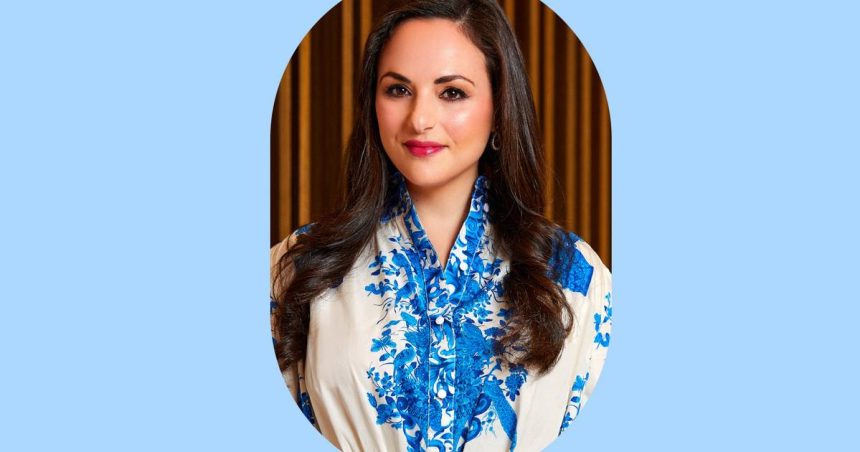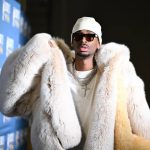In a world of short tenures for CMOs and otherwise, Emily Essner is exceptionally brand loyal.
Essner, CMO of Saks Fifth Avenue’s e-commerce arm, Saks, has been in the company’s family since 2011. She held corporate strategy roles at both Saks Fifth Avenue and its parent company, Hudson’s Bay, before switching to marketing and business operations. When Saks’s e-commerce arm was split off from Saks Fifth Avenue in March 2021, Essner split off, too—and she’s served as CMO of the digital platform ever since.
Throughout her career, Essner told us her goal has always been to be “as close to consumers as possible,” thinking about, “Why are we here? What are we doing, and how is whatever we’re doing better serving our customer?”
Initially, Essner said Saks Fifth Avenue’s marketing was more focused on art and visuals and less on the science behind marketing. Now, she said, her team is “highly data-driven,” incorporating things like machine learning and virtual experiences to heighten the luxury experience while also staying true to Saks’s legacy as a high-touch fashion brand.
The intersection of art and tech
While much of her background is in marketing, Essner began her career in banking and consulting. Being willing to try new things is something that Essner said got her to where she is and something she encourages young people to consider.
“Great careers are not going to be shaped because of how you plan, they’re going to be shaped by opportunities that come to you,” she said. “Being open to opportunities, even if they aren’t exactly what you were expecting or they don’t happen at exactly the time you were planning, that often is how you end up having a really interesting and meaningful path.”
Going from banking and consulting to marketing, she said, helped her succeed as a marketer by teaching her about resource allocation, which she called “the most important thing that senior leaders can spend their time on.” At Saks, that resource allocation includes a big bet on digital resources.
“We still do a little bit of print, we feel like we’ve got that very much at the right investment level,” Essner said. “But at this point, certainly the biggest transition in terms of where we’ve invested is a shift from more traditional to newer channels.”
Through its data science machine learning practice, Essner said her team keeps an eye on metrics like performance, ROI, and what’s driving consumer behavior and customer value. Video, she said, has been a “surprisingly strong returner” for Saks in recent years. Some of the video formats the brand has experimented with have included celebrity wardrobe tours and interviews with brand directors. Essner said the brand has also been “bullish” on podcast advertising.
Get marketing news you’ll actually want to read
Marketing Brew informs marketing pros of the latest on brand strategy, social media, and ad tech via our weekday newsletter, virtual events, marketing conferences, and digital guides.
But the strategy that’s gotten perhaps the most attention since Saks split off has been live commerce, which has consisted of recurring and seasonal events, like holiday shopping shows. Essner said she believes live commerce will serve as a differentiator for luxury consumers in the future.
“You think about the traditional, in-store experience of luxury where you get to see the product up close, you get that expert advice and information about that product from a very well-trained sales associate. We think that live commerce is how we take that, at scale, to a digital consumer,” she said.
In addition to driving customer loyalty and, in turn, more dollars spent, Essner said Saks’s brand partners have also benefited from the live-commerce format. “It enables them to be able to showcase their brand, get deep into their product, into the history of the design or the inspiration,” she said. “It really is a medium that lends itself very well to the specifics of luxury fashion.”
Personal(ized) experiences
As with live commerce, sometimes tech can only go so far. Especially in retail, some customers may want to put a face to a brand name. “So much of [brand] loyalty is actually driven by the relationship that any customer has with their sales associate,” Essner said.
To strengthen those relationships, Saks created a VIP client program called Saks Limitless where customers can work one-on-one with sales associates and gain access to things like products and exclusive events. Beyond that,, Essner said, brand communications to all customers are tailored based on more than 250 data points like browsing and shopping data and other predictive attributes to deliver a more personalized experience.
“We’re really looking over the horizon to really marry a lot of that personalization that is more data-driven with a real, live person,” she said. “In the end, that is going to be a lot of the secret sauce.”
Projecting the face of the brand also extends to Saks’s influencer strategy, which is focused on representation. “Diversity is a pretty big focus for us, and so we want to make sure that when we think about the broad swath of luxury consumers, they’re really able to see themselves within our content [and] within the influencers that we’re working with,” Essner said.
While the brand’s average customer age has been going down since 2019, Essner said that “age isn’t something that we’ve ever been particularly focused on,” and the brand isn’t targeting any specific age groups with its influencer marketing. Rather, she said, Saks is focused on working with creators who love fashion and can organically reflect the brand. By projecting a “relatable, but aspirational image,” she said Saks is appealing to younger consumers—just not exclusively.
Read the full article here










